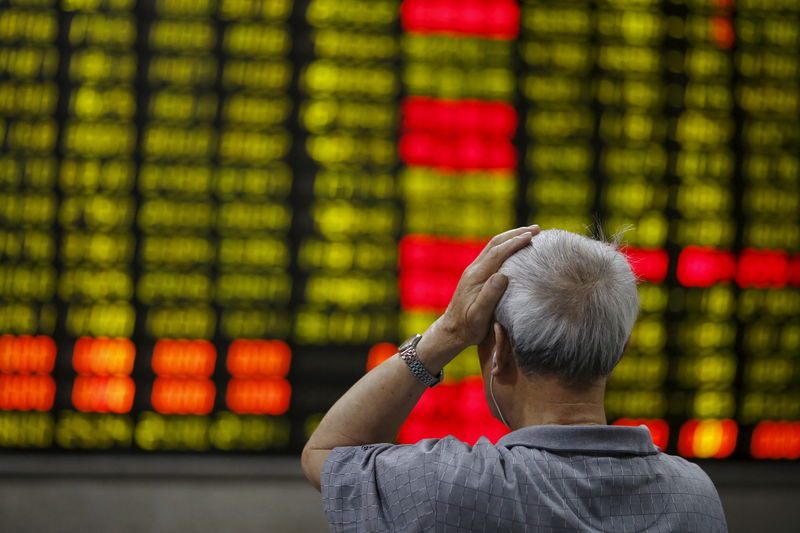(Bloomberg) -- The Nikkei 225 Stock Average plunged below the 20,000 level and entered bear market territory, as Japanese equities headed for their worst December on record.
The Nikkei 225 fell 5 percent to close at 19,155.74 in Tokyo, with all but two members in the red. The blue-chip stock gauge dropped below 20,000 for the first time since September 2017 and closed 21 percent lower from an Oct. 2 high, joining the broader Topix index in a bear market.
“It’s just like panic selling,” said Nobuhiko Kuramochi, head of investment information at Mizuho Securities Co. in Tokyo. “The equity markets are pricing in concerns over a slowdown in the global economy and a downward revision in corporate earnings in advance. Some investors are reducing their exposure to equities in their portfolio” by increasing cash or bonds.
Japanese stocks have been caught in a global market rout, spurred by concerns about everything from the U.S.-China trade war to global central banks’ moves to tighten monetary policy. Sentiment has deteriorated in December, with foreign investors offloading billions of dollars in the country’s shares.
Japanese Finance Minister Taro Aso said the financial markets may be overreacting and he’s not overly worried about recent market moves. Officials from the Bank of Japan, Finance Ministry and Financial Services Agency will meet today at 6 p.m. local time, according to an emailed statement from Ministry of Finance.
Adding to market woes, an emergency margin call was triggered for Japan index futures, according to Japan Securities Clearing Corp.
“Market players on futures need to either reduce their trade volumes or pay emergency margins, which may make it difficult for them to actively trade,” said Hajime Sakai, chief fund manager at Mito Securities Co. Futures contracts on the Nikkei 225 fell below 19,000 as of 3:15 p.m. in Tokyo.
Some superlatives after a harrowing day:
The S&P 500 plunged almost 3 percent Monday after news that Treasury Secretary Steven Mnuchin called top executives from the six largest U.S. banks to discuss liquidity and a Bloomberg News report that President Donald Trump inquired about firing Fed Chairman Jerome Powell. The U.S. government was partially shut down for a third day, amid a lack of urgency to resolve Trump’s demand for border wall funding.
“The Trump bubble, which has brought gains in U.S. stocks and the dollar, is collapsing,” said Mitsushige Akino, an executive officer at Ichiyoshi Asset Management Co. in Tokyo. “The more stocks fall, the more investor sentiment gets worse, so there’s more people who need to sell temporarily, such as stop-loss selling.”
‘Just Psychological’
The Nikkei falling back through the 20,000 level is “not very” important, said Jaiganesh Balasubramaniam, a market technician at Cashthechaos.com. “It’s just psychological. Round numbers.”
“It’s more a reaction to the yen,” Kerry Craig, a Melbourne-based global market strategist at JP Morgan Asset Management, said of the Nikkei’s recent declines. Craig said he’s positive on Japanese stocks in the longer term, because of positive earnings forecasts and the country’s corporate governance overhaul. But more immediately, he said, it’s hard to escape the global stock rout.
Mizuho’s Kuramochi said the equity markets are approaching a “selling climax.” Yet, the markets need a catalyst, such as an end to the U.S. government shutdown or a positive outcome from trade negotiations between the U.S. and China, so any rebound may wait until after New Year, he said.
